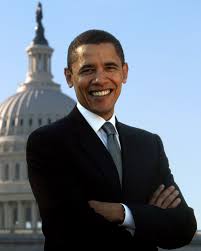 |
| Kaku |
Every now and then, some scientist
sets out to “prove” that God exists. It’s
an ironic task: God must exist outside science, but someone still wants to use
science to “prove” existence.
The latest is theoretical physicist
Michio Kaku, who is well known for his many appearances on science shows where
he talks about the universe and its various aspects. He is also one of the scientists behind the
revolutionary String Theory, which claims that energy exists not as participles
but in strands.
Of course, that’s only a
theory. There’s no proof that strings exist
or don’t exist.
Nevertheless, Kaku is sure God
does. He bases his argument on “primitive
semi-radius tachyons,” which are imaginary particles that supposedly “are
capable of unsticking the universe matter or the vacuum space between
particles.”
To Kaku, the supposed existence of
these invisible tachyons “proves” that the universe must have been out together by
something intelligent and not at random.
“I have concluded that we are in a
world made by rules created by an intelligence,” Kaku said. “Believe me,
everything that we call chance today won't make sense anymore. To me, it is
clear that we exist in a plan which is governed by rules that were created,
shaped by a universal intelligence and not by chance.”
How strange: using the existence of
an unproven particle to claim the existence of an unproven deity.
 |
| Clockwork universe? |
Nevertheless, because of Kaku’s
prominence, his argument deserves to be examined and not curtly dismissed.
The first thing to note is that his
claim in not new. Philosophers began insisting
back in the 1600s that the university is like a “clock.” That is, it was put together in an
intelligent way and not just some haphazard pieces and then left to run
following natural law. Isaac Newton’s
recognition of universal laws helped fuel this idea, which became popular until undermined by modern science.
 |
| Newton |
It’s also wrong. Much of what we can see through space probes
and other research tools now demonstrates that the universe is anything but
organized. As English geneticist J.B.S.
Haldane commented (although the quote is also attributed to others), “The universe
is not only stranger than we imagine, it is stranger than we can imagine.”
Newton
had no way of knowing that the universe is definitely not akin to clockwork. Kaku should.
Secondly, a God who creates a
universe does not correspond to a God that everyone prays to. Under Kaku’s formula, God created and then
departed. That’s known as deism, and it
is not endorsed by any organized religion. It’s certainly not the deity billions of people
worldwide worship.
Kaku
accepts that limitation. In a 2011 interview,
he stated: “There really are two kinds of Gods.
If God is the God of intervention, the personal God, the God of prayer, the God
that parts the waters, then I have a hard time believing in that. Does God
listen to all our prayers for a bicycle for Christmas, or to smite the
Philistines? Einstein believed in the God of order and harmony, simplicity and
elegance. The universe is gorgeous, and it didn’t have to be that way.”
 |
| Aviezar |
Then, too, Kaku is incorrect to
argue that the universe is too complex to occur by happenstance. Nathan Aviezer, an Orthodox Jewish American-Israeli physicist
and a physics professor at Bar-Ilan University, pointed that “complicated
items do form by themselves. Crystals and chemical reactions are the
most complicated things, and they happen by themselves. My favorite example is
snowflakes, which each form uniquely by themselves. But that is not proof there
is a God.”
Finally,
we live in this universe because it follows natural rules. Scientists are now theorizing that multiple
universes exist, some of which are dead and barren; others which may have
different dimensions. In essence, we
exist because this universe just happened to contain the correct design that
supports life.
Life
evolved because it could, not because some invisible deity organized
everything.
In
fact, our evolution has reached a stage that even an eminent physicist can make
an absurd claim about a unproven deity using imaginary particles to buttress
his specious argument.
Sounds
pretty random after all.
Long-time
religious historian Bill Lazarus regularly writes about religion and religious
history with an occasional foray into American culture. He also speaks at
various religious organizations throughout Florida. He holds an ABD in
American Studies from Case Western Reserve University and an M.A. in
communication from Kent State University. You can reach him at
wplazarus@aol.com.
He
is the author of the famed novel The Unauthorized Biography
of Nostradamus as well as The Last Testament of Simon Peter;
The Gospel Truth: Where Did the Gospel Writers Get Their Information;
Noel: The Lore and Tradition of Christmas Carols; and Comparative
Religion for Dummies. His books are available on
Amazon.com, Kindle, bookstores and via various publishers. He can also be
followed on Twitter.
In
addition, you can enroll in his on-line class, Comparative Religion, at
http://www.udemy.com/comparative-religion-for-dummies/?promote=1












